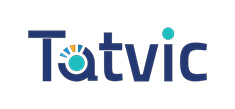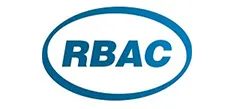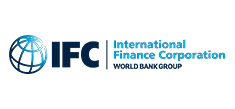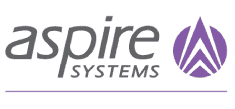Top economies around the globe are stressing on innovation in order to boost their economic growth. And, Singapore ranks as the top most innovative economy in the entire Asia and seventh in the world as per the 2017 Global Innovation Index. Moreover, as per the October 2017 data from International Monetary Fund, Singapore has a gross domestic product (GDP) of USD 316.87 billion and the adjusted for purchase power (PPP) per capita of around USD 55,230. These are the primary reasons for leading economic growth in Singapore.
Being a global financial and innovation hub in Asia, Singapore is well-positioned to capitalize on the economic expansion. Recognising such opportunities, many fund management companies are establishing their businesses in Singapore.
Even the government of Singapore is promoting the region as a key fund management centre in Asia. In addition to the government support, robust infrastructure, attractive tax environment and pro-business regulations add further in magnetising businesses to set up fund management companies in Singapore. Let us see some of the key advantages of setting up Singapore fund management companies.
Benefits of setting up a Fund Management Company in Singapore
According to the International Monetary Fund, Asia’s dynamic economies continue to lead to strong global growth, thus showing a positive outlook for the future. In addition, efficient infrastructure, abundance of resources, extensive distribution channels, sound regulatory environment and government support further ease the operations of fund management companies.
Regulatory Framework For Fund Management Companies In Singapore
With ample growth prospects, the Singapore fund management companies are developing and expanding quickly. This also poses a challenge to strengthen the regulatory framework in order to complement the growth. Therefore, the Monetary Authority of Singapore (MAS) has taken steps to enhance the regulatory framework by specifying certain conditions and restrictions that are to be abide by all the fund management companies in Singapore and licences are administered under the Securities and Future Act (“SFA”).
As per the enhanced regulatory regime, it is mandatory for all the fund management companies operating in Singapore to either register with MAS as a Registered Fund Management Company (RFMC) or apply for a Capital Markets Services Licence (CMSL) to conduct fund management as a Licensed Fund Management Company (LFMC).
Categories of Fund Management Companies in Singapore
Based on the revised framework, there are total THREE categories of FMCs. They are segregated based on the size and nature of their business.
- Registered Fund Management Company (RFMC)
Registered FMCs are exempt from the requirement of obtaining Capital Markets Services Licence (CMSL) in order to conduct businessin fund management. Therefore, all the companies which were previously running a business as EFMs are now recognised as Registered FMCs.
To carry on business as a Registered FMC, the total value of the assets managed should not exceed SGD 250 million and number of qualified investors should not be more than 30. Out of these 30 qualified investors, not more than 15 may be funds or limited partnership fund structures. - Retail Licensed Fund Management Company (R LFMC)
Retail LFMCs are allowed to conduct business in fund management with all types of investors. They have to appoint a qualified staff for compliance function who are independent of the front office function. In order to safeguard the public interest, the staff has to pass a Capital Markets and Financial Advisory Services examination. - Accredited / Institutional Licensed Fund Management Company (A/I LFMC)
Accredited / Institutional LFMCs are required to obtain a Capital Markets Services Licence (CMSL) in order to conduct business in fund management. These are FMCs which only serve accredited and/or institutional investors. Their total value of the assets managed is more than SGD 250 million or they manage over 15 funds.
Accredited / Institutional LFMCs are allowed to conduct business in fund management only with qualified investors. However, there are no restrictions on the number of investors served, meaning they can serve more than 30 investors also.
Key Regulatory Compliances for Fund Management Companies in Singapore
Type of Approval Required to Commence Business
- Registered FMCs can commence business after MAS approves its notification and registers its name on their website’s online directory
- Retail LFMCs can commence business after the grant of a license by MAS
- Accredited / Institutional LFMCs can commence business after the grant of a license by MAS
Type & Number of Investors
- Registered FMCs are allowed to do fund management business with upto 30 qualified investors (of which not more than 15 may be funds or limited partnership fund structures)
- Retail LFMCs are allowed to do fund management business with all types of investors. They have no restriction on the number of investors served
- Accredited / Institutional LFMCs are allowed to do fund management business with qualified investors only. They have no restriction on the number of investors served
Assets Under Management (AUM)
MAS requires that FMCs should entrust the AUM calculation to independent valuation and reporting. In determining the value of assets being managed, FMCs must involve independent third party service providers (like prime brokers, depositories and banks) that are registered, licensed or authorised.
In cases, where FMCs have an in-house valuation function which is separated from investment management function, AUM can be done in-house.
- To carry on business as a Registered FMC, the total value of the assets managed should not exceed SGD 250 million
- There is no such restriction in the case of Retail LFMCs and Accredited / Institutional LFMCs
Minimum Base Capital Requirement
An FMC has to meet the minimum base capital requirements mentioned in the Securities and Futures (Financial and Margin Requirements for Holders of Capital Markets Services Licences) Regulations (SF(FMR)R). Such base capital threshold must be maintained on an ongoing basis along with enough additional capital buffer, over an above the base capital requirement. The buffer amount can be decided depending on the needs and scale of its operations.
The prescribed base capital thresholds are different for each category of FMC depending on the license category or registration.
- Registered FMCs and Accredited / Institutional LFMCs are required to maintain a minimum base capital of SGD 250,000
- The base capital requirement for Retail LFMCs depends on the investment schemes offered and type of customers serviced. If a Retail LFMC carries out fund management in respect of any CIS offered to any investor other than an accredited / institutional investor then it has to maintain a minimum base capital of SGD 1,000,000. Likewise, if a Retail LFMC carries out fund management in respect of any non-CIS on behalf of any customer other than an accredited / institutional investor then it has to maintain a minimum base capital of SGD 500,000
Risk-Based Capital Requirement
FMCs are required to implement a risk management framework in order to recognise, address and monitor the risks linked with customer assets that they manage.It is mandatory for FMCs to meet the risk-based capital requirements at all times as specified in the Securities and Futures (Financial and Margin Requirements for Holders of Capital Markets Services Licences) Regulations (SF(FMR)R.
- Registered FMCs do not have any such condition to maintain risk-based capital
- Retail LFMCs and Accredited / Institutional LFMCs are required to maintain financial resources of at least 120% of operational risk requirements
Professional Indemnity Insurance (PII)
Due to the ongoing market volatility, many investors demand professional indemnity insurance as a pre-condition for investment in order to eliminate risk. Therefore, all categories of FMCs are strongly encouraged to purchase adequate Professional Indemnity Insurance coverage.
- However, it is not mandatory for Registered FMCs and Accredited / Institutional LFMCs
- Retail LFMCs have to compulsorily obtain PII, in accordance with the size of their Assets Under Management
Competency Requirement
An FMC should maintain minimum competency requirements with regards to its key individuals. It should ensure that its directors, shareholders, representatives, employees and FMC as a whole are fit and proper as per the MAS guidelines. The minimum competency requirements that all FMCs have to adhere to are as follows:
- All the Registered FMCs and Licensed FMCs are required to appoint minimum 2 directors having at least 5 years of financial services industry experience (atleast 1 director must have more than10 years of experience in case of Retail LFMCs). Out of 2 directors, 1 director must be an executive director who is involved in the day-to-day operations of the company on a full-time basis and should be resident in Singapore.
- All the Registered FMCs and Licensed FMCs are required to appoint minimum 2 relevant professionals (minimum 3 in the case of Retail LFMCs) which includes directors, CEO and representatives of the FMC. These professionals have to be resident in Singapore
Audit and Compliance
Compliance Arrangement
All the FMCs are responsible to ensure that there are adequate compliance arrangements in place depending on the scale of operations, nature of business and complexity of operations.
- Registered FMCs do not require a dedicated or independent compliance function. They can take the compliance support from overseas affiliates and can also take help from external service providers. Moreover, their CEO or senior staff can carry out these duties
- Accredited / Institutional LFMCs with AUM less than SGD 1 billion, are required to have an independent and dedicated compliance function which is separate from the front office. In order to maintain compliance, Accredited / Institutional LFMCs must appoint a senior staff like a CFO or a COO, who are suitably qualified. They can also take support from an overseas related entity or holding company’s compliance team. If nothing works out, they have to outsource a qualified external service provider
- Retail LFMCs with AUM more than SGD 1 billion, are required to have an independent and dedicated compliance function. Their staff must be suitably qualified
Auditing Requirements
It is compulsory for all the FMCs to get the internal audit done having regard to the scale of operations, nature of business and complexity of operations. Such an audit can be conducted by an internal auditor within the company, an internal audit team from the head office or by the independent third-party service provider.
FMCs are also expected to compulsorily meet the annual independent audit requirements as set out in the SFA and SF(LCB)R. For the same, they need to have an external audit arrangement in place. They need to provide the auditor’s report to MAS who checks the necessary compliances done by the FMCs.
Risk Management Framework
FMCs are subject to risks. The risk varies depending on the scale of operations, nature of the business and the nature of assets that they manage. Therefore, all FMCs must ensure adequate risk management framework in order to recognise, address and monitor the risks linked with customer assets that they manage.
They have to strictly follow the MAS guidelines in relation to risk management and other relevant best industry practices. These guidelines are applicable to all the financial institutions including FMCs. The minimum requirements that FMCs have to comply with in regard to risk management framework are:
- The risk management function must be governed by the Board of directors and senior management personnel. Such functions must be entrusted to competent and independent staff
- FMCs must acquire or develop the required tools and metrics in order to efficiently identify and measure the risks associated with customer assets
- FMCs should have proper procedures in place to timely monitor the risk exposure and report these to the management for timely action
- FMCs much document and maintain all the policies, procedures and reports associated with the risk management function
Anti-Money Laundering (AML) and Countering the Financing of Terrorism (CFT) Requirements
It is compulsory for all FMCs to implement an anti-money laundering framework and countering the financing of terrorism framework. This is to ensure that any money laundering and terrorism financing risks in the FMCs are identified, assessed, understood and addressed on a timely basis. They are expected to report to MAS about any misconduct or material changes within its functioning. In addition, they should take the approval from MAS wherever deems necessary.
Reporting Requirements
All FMCs are required to furnish regulatory returns in relation to its activities to MAS. Registered FMCs have to comply to annual reporting requirements whereas Accredited / Institutional LFMCs and Retail LFMCs are required to comply to quarterly as well as annual reporting requirements.
Tax Regimes for Fund Management Companies in Singapore
One of the prime reason for the boost in the fund management industry in Singapore is the attractive tax incentives for funds and fund managers. Singapore is known for its attractive regulatory and tax regimes and that adds up to the boost in the overall fund management industry.
Basic Tax Regime for Singapore Funds Managers
Funds managed by Singapore based fund managers (whether offshore or onshore)are subject to tax in Singapore due to territorial activity. While conducting the business, the fund managers may create a taxable presence in Singapore, because of which the gains and income they earn might be considered as Singapore-sourced and hence might be subject to tax in the country. But the best part is, fund managers can do away with this tax liability under Singapore’s tax incentive schemes for funds on fulfilling certain condition.
Conditions for Singapore Tax Incentive Schemes for Funds
In order to avail the tax exemption, there are three main tax exemption schemes for fund managers. Under these schemes, any “Specified Income” (including gains) obtained from “Designated Investments” is exempt from the scope of taxation, on fulfilling the relevant conditions attached. Funds that are part of any of these three tax exemption schemes as at 31 March 2019 may avail the benefit of lifelong tax exemption, subject to fulfilling the conditions of the scheme. To qualify for the schemes, funds must be registered with MAS or they must hold a capital market services license.
The three schemes are as follows:
- Offshore Funds Tax Exemption Scheme (Section 13CA of Singapore Income Tax Act)
- Onshore FundsTax Exemption Scheme (Section 13R of Singapore Income Tax Act)
- Enhanced Tier Fund Tax Exemption Scheme (Section 13X of Singapore Income Tax Act)
Scheme Exemption
All the three schemes exempt the “Specified Income” received from “Designated Investments”. At present, the exemption is available till 31 March 2019. “Designated Investments” include investments in shares, securities, stocks and derivatives.
Offshore Funds
Key features of Offshore Funds Tax Exemption Scheme
Singapore government has provided a tax incentive scheme in order to encourage fund managers to set up business here. The scheme exempts offshore funds from the liability of tax provided it is not 100% owned by Singapore investor. The investor shall be liable to pay tax depending on his specific profile.
- Fund’s Legal Form:
Companies, individuals and trusts qualify for the exemption. A limited liability partnership does not qualify for exemption. - Fund’s Residence:
Fund should not be resident or have any presence in Singapore and it must not be 100% owned by Singapore investor. - Fund Manager:
The fund manager has to be Singapore-based and must be registered with MAS or hold a capital market services license. - Investors:
If the investor is not a qualifying relevant owner (i.e. Singapore non-individuals investing above a certain percentage in the fund), he will have to pay a penalty to the Singapore tax authorities. - Approval Requirement:
Offshore funds do not require approval from the MAS.
Onshore Funds
Key features of Onshore Funds Tax Exemption Scheme
In 2006, the Singapore government has provided a tax incentive scheme for resident funds in order to encourage fund managers to set up business here and claim the same benefits as offshore funds.
- Fund’s Legal Form:
Companies incorporated in Singapore qualifies for exemption. - Fund’s Residence:
Fund should be resident in Singapore and it must not be 100% owned by Singapore investor. - Fund Manager:
The fund manager has to be Singapore-based and must be registered with MAS or hold a capital market services license. - Investors:
If the investor is not a qualifying relevant owner (i.e. Singapore non-individuals investing above a certain percentage in the fund), he will have to pay a penalty to the Singapore tax authorities. - Approval Requirement:
Onshore funds require an approval from the MAS. - Additional Requirements:
The fund must have a minimum of SGD 200,000 local business spending annually. The fund administrator must be Singapore based. The fund is not allowed to amend its investment strategy after receiving approval from MAS. - Unique Feature:
These funds can access Singapore Double Tax Treaty network.
Enhanced Tier Fund
Key Features of Enhanced Tier Fund Tax Exemption Scheme
Just like the above two schemes, Enhanced Tier Fund Scheme also provides a tax exemption for incomes and gains arising out of designated investments.
- Fund’s Legal Form:
Companies, limited liability partnerships and trusts (with certain exceptions) qualify for the exemption. - Fund’s Residence:
Fund can be located offshore or onshore to claim the benefit. - Fund Manager:
The fund manager has to be Singapore-based and must be registered with MAS or hold a capital market services license. - Investors:
There are no restrictions on Singapore investors. - Approval Requirement:
Enhanced Tier funds require an approval from the MAS. - Additional Requirements:
The fund must have a minimum size of SGD 50 million and must have a minimum of SGD 200,000 local business spending annually. If the fund is incorporated in Singapore or it is a resident company, the fund administrator must be Singapore based. The fund is not allowed to amend its investment strategy after receiving approval from MAS. Such funds cannot concurrently enjoy other tax incentives. - Unique Feature:
This scheme applies to all the onshore and offshore limited liability partnerships and companies.
Incentive
Fund Management Incentive
The financial sector incentive for fund managers focuses on promoting the growth of fund management activities in Singapore. It allows a discounted tax rate of 10% on fee income derived by Singapore fund manager from managing or advising a fund, subject to MAS approval and certain conditions being fulfilled.
For new applicants to qualify for a minimum 5-year award, the general qualifying criteria are as follows:
- The applicant must be registered with MAS or hold a capital market services license to undertake fund management or investment advisory activities in Singapore
- The applicant must have a minimum total value of the assets managed of SGD 250 million
- The applicant must have minimum 3 experienced professional staff (earning more than SGD 3,500 monthly) who are engaged in fund management or investment advisory services
- In addition, while granting incentive, MAS may also take into consideration other factors such as number of professionals employed, growth targets for assets under management and business spending of the applicant
Summary
Singapore provides a tax efficient environment for fund management companies to carry on their operations. Tax exemptions, incentives, subsidised tax rates and easy laws boost the overall fund management industry. Moreover, MAS guidelines on an enhanced regulatory framework help to improve transparency in operations and protect investors interest. This leads to overall industry growth.
Registering or getting a license for a fund management company in Singapore is not easy and it is advisable to take the guidance and support from professionals. Moreover, determining the ideal fund management company structure, appropriate jurisdiction to set up business and tax benefits of the structure are few crucial areas which need expertise and experience of professionals.
Online Registration Process
Gather all Your Documents
Decide your preferred names, who will be your directors and shareholders, their details, and keep all other supporting documents or paperwork handy.
Fill out the Online Form
It takes just a few minutes to fill our online form.
e-signature on the documents we send to you
Our e-signatures are legally-valid and accepted in Singapore.
We do the filing on your behalf
We would manage the company incorporation process with the relevant authorities in Singapore.

A Member Firm of Andersen Global
- 175+ Countries
- 525+ Locations
- 17,500+ Professionals
- 2350+ Global Partners

Need Assistance?
Get In Touch
We appreciate your interest in IMC and are eager to address your needs.
To ensure we address your needs accurately and promptly, please fill out this form. This will help us in identifying and connecting you with the appropriate team of experts in our organisation.
We take pride in our responsiveness and aim to get back to you within a span of 1-2 business days. Your journey towards solutions starts here.
Companies we have worked with













































 IMC Group
IMC Group